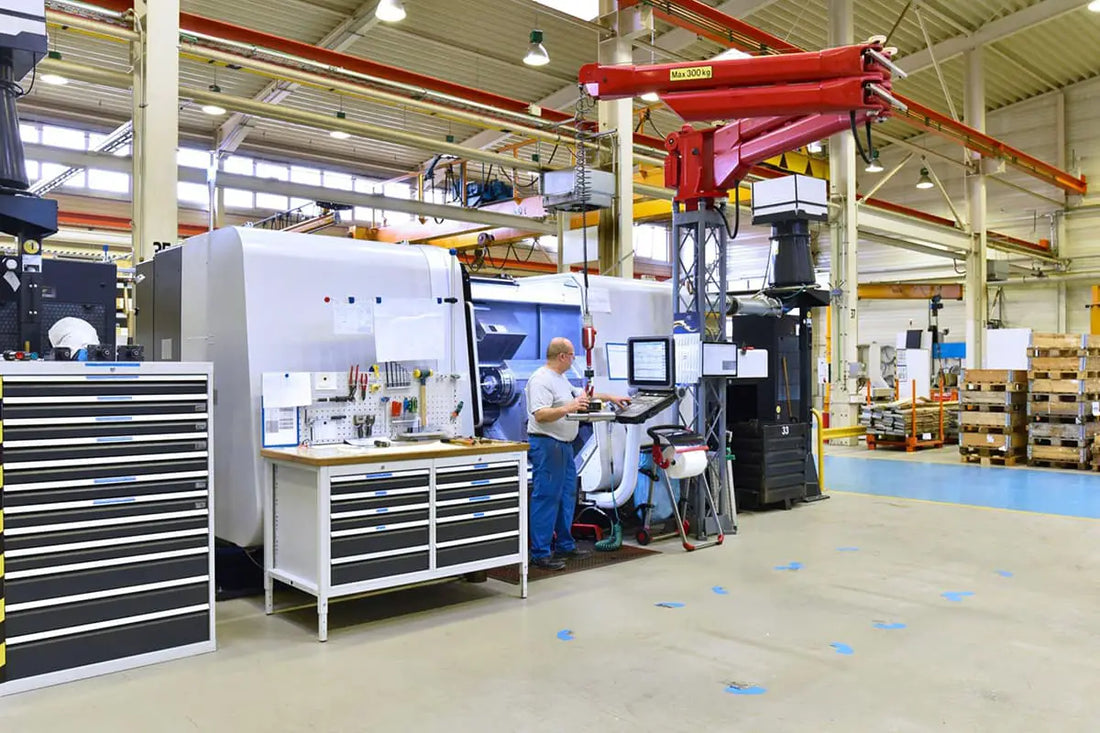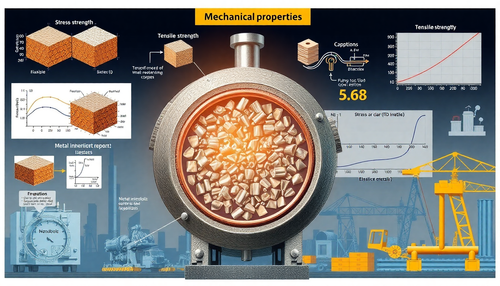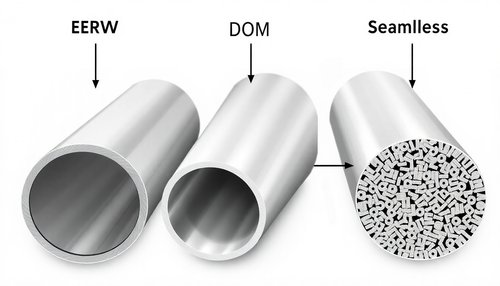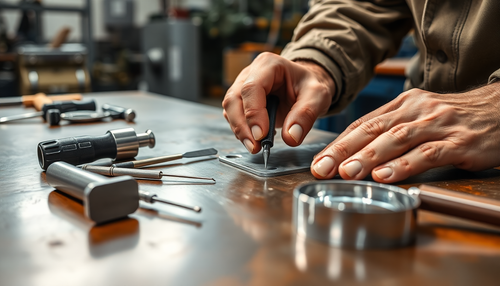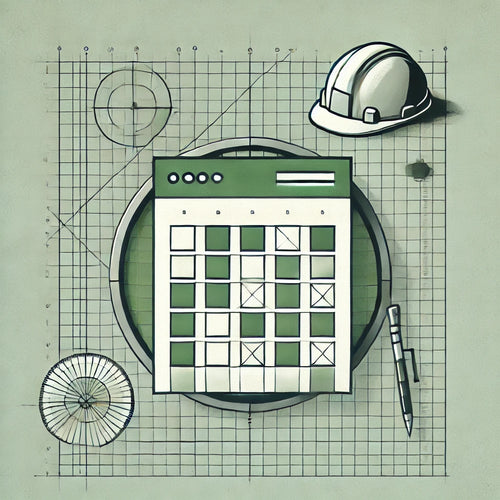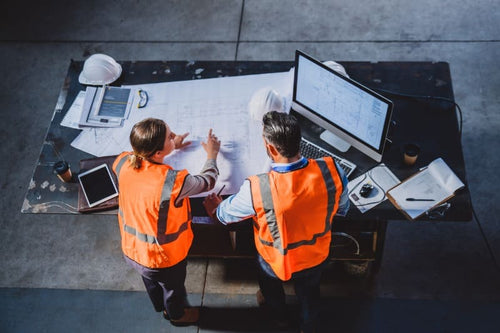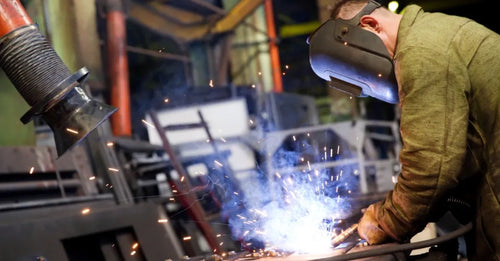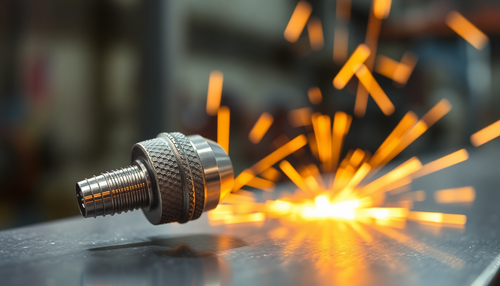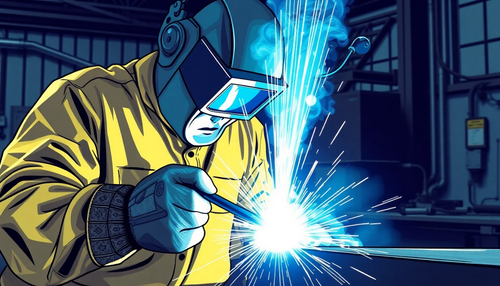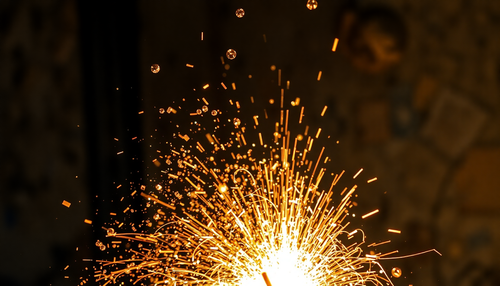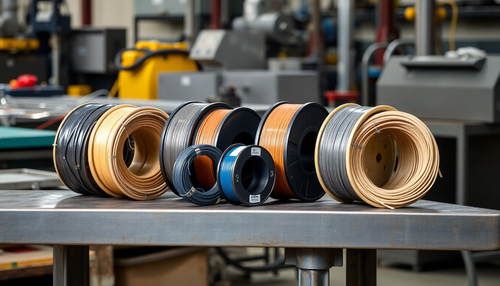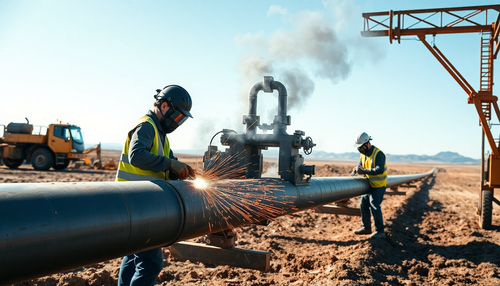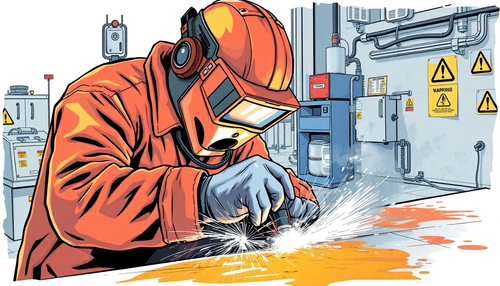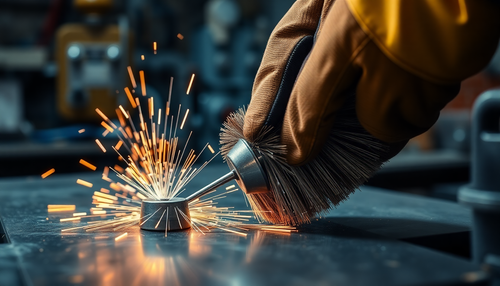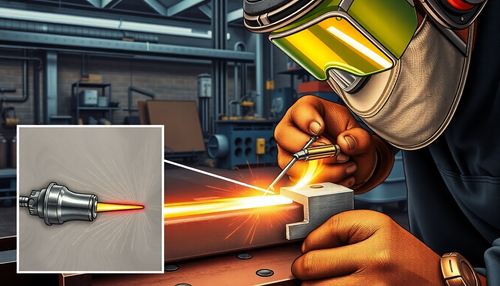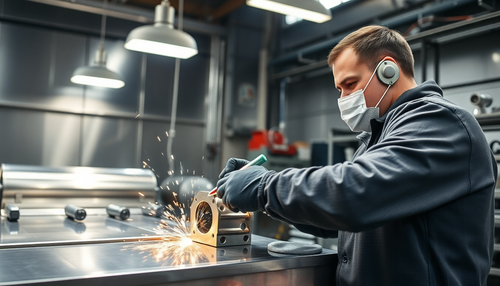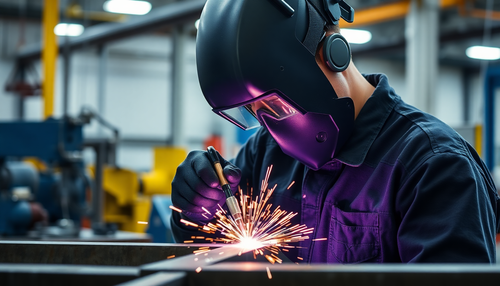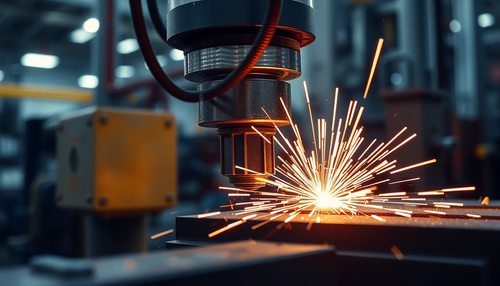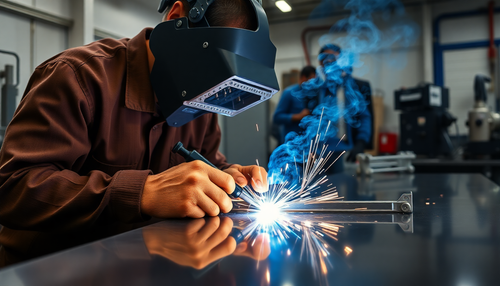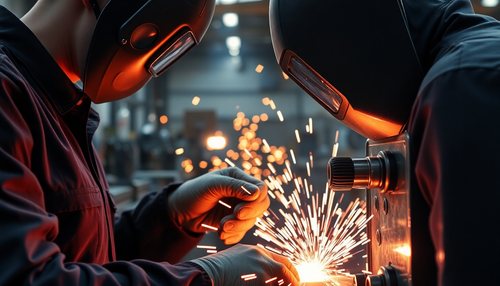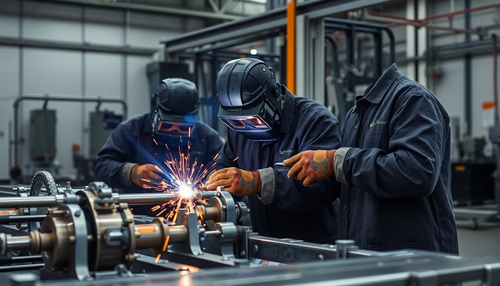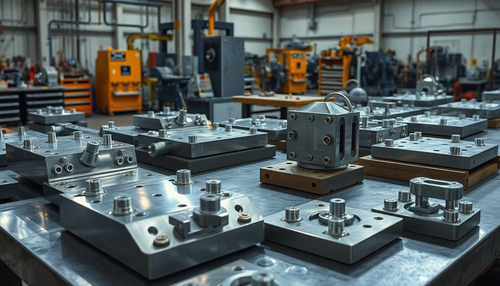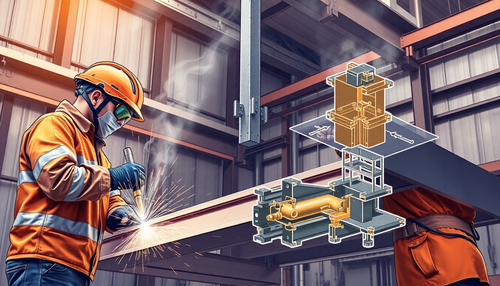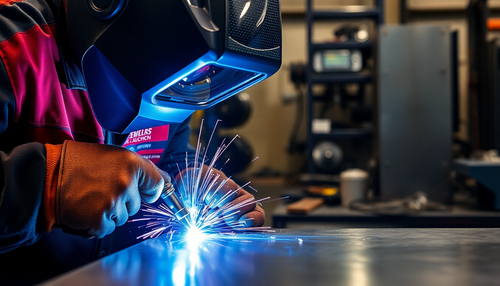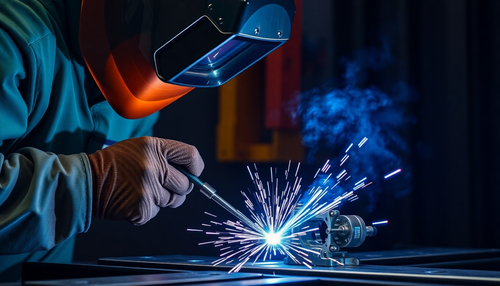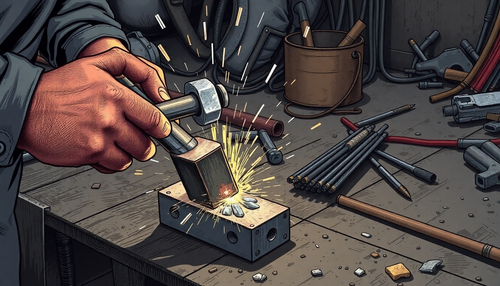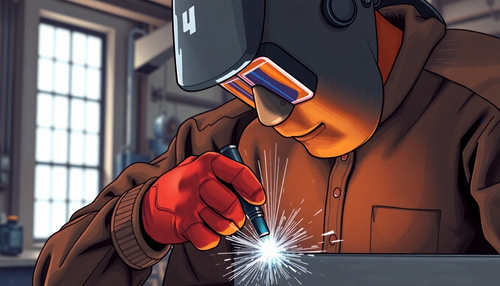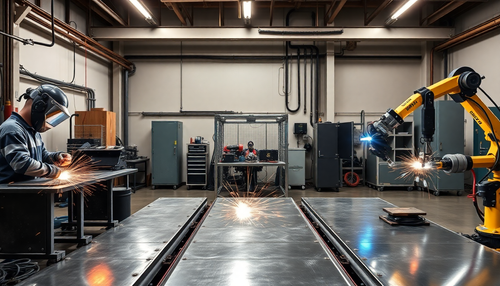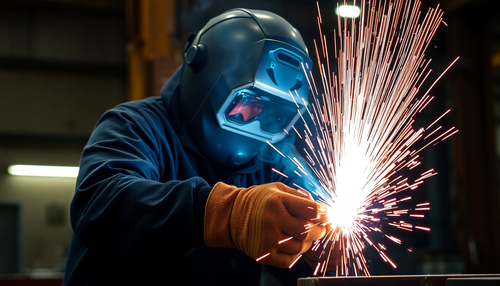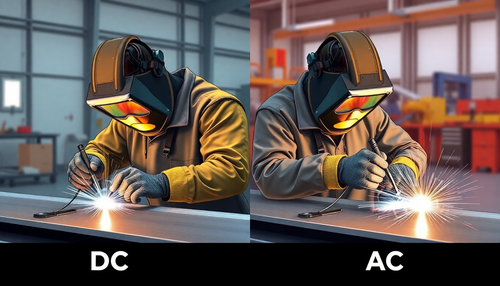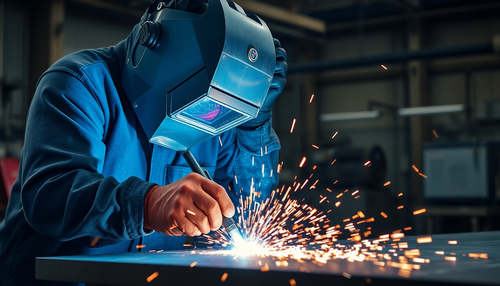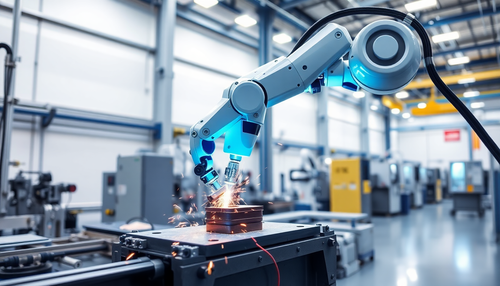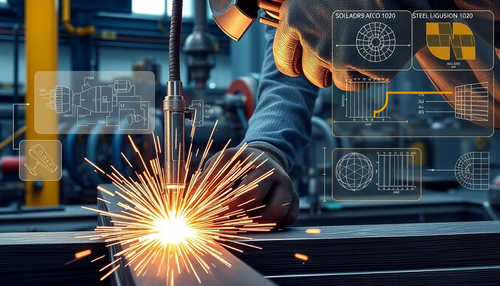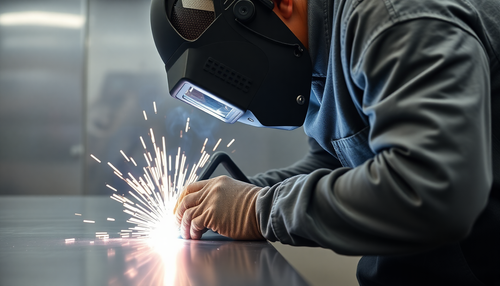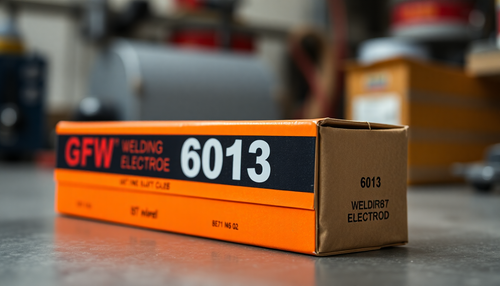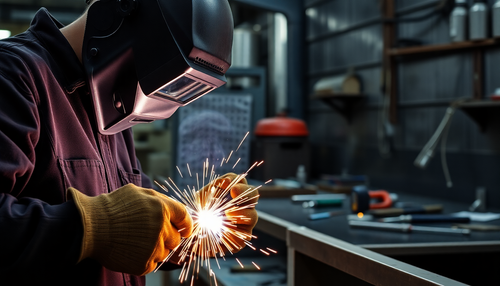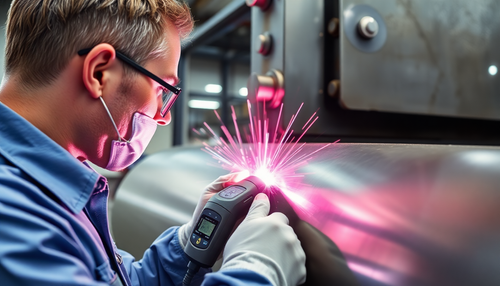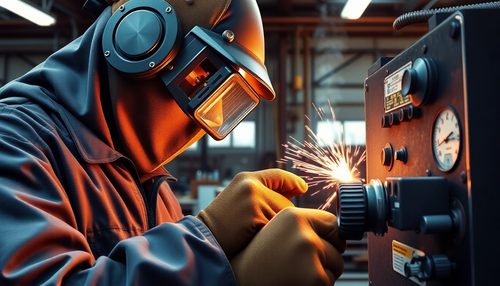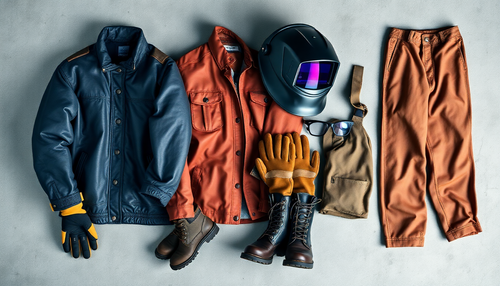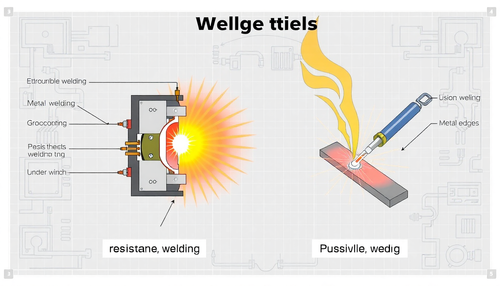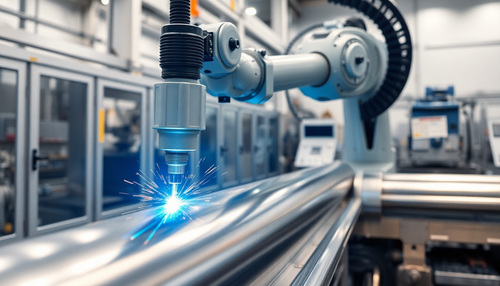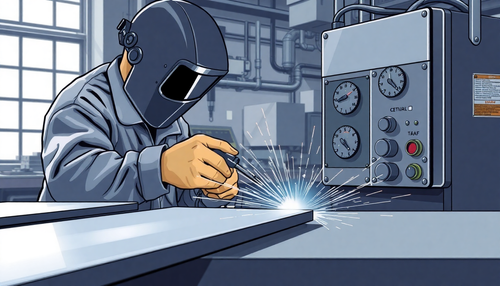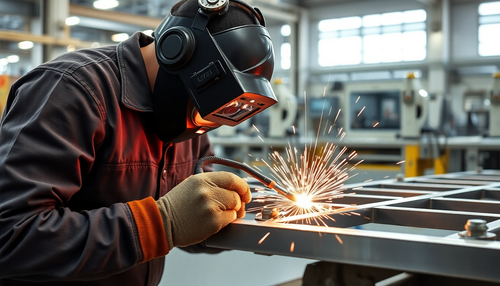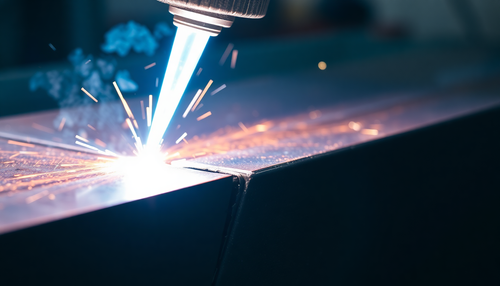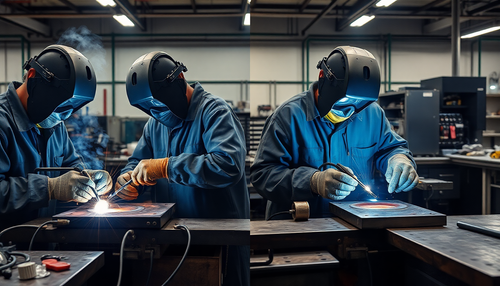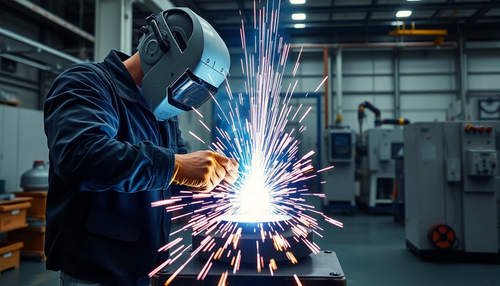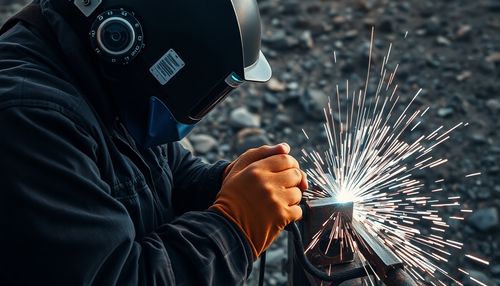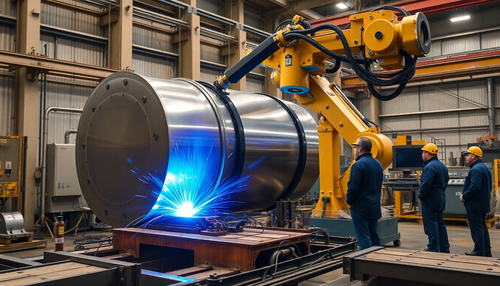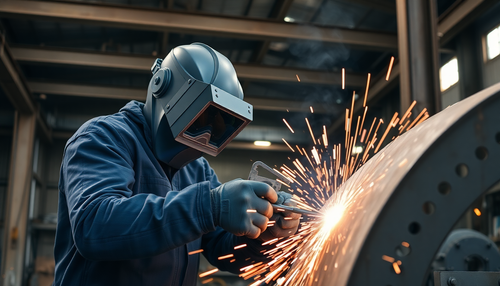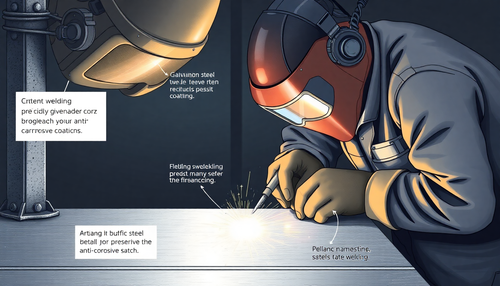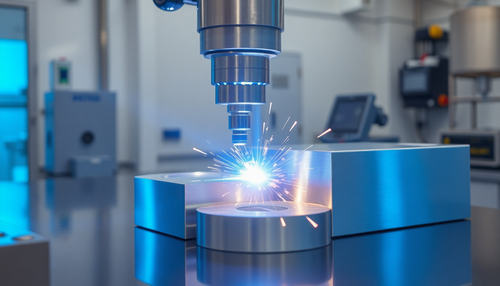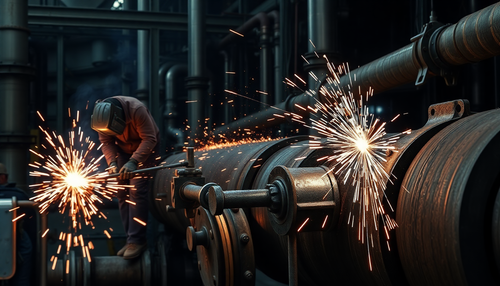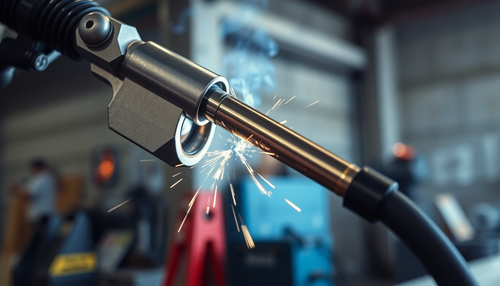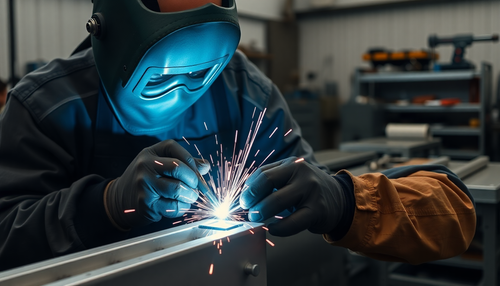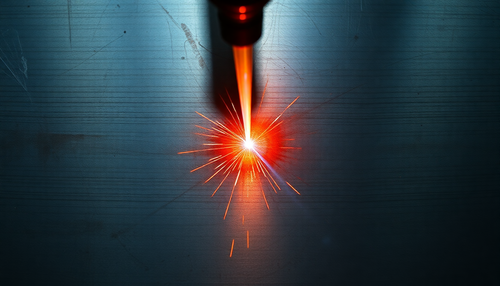Renowned German brands of CNC machines include Trumpf, DMG MORI and Chiron. Trumpf is famous for its high-quality laser cutting machines, DMG MORI excels in producing 5-axis CNC machines, and Chiron is known for its fast and accurate machining centers. These brands support Germany's reputation for manufacturing precision and quality.
The German government has consistently attached great importance to the strategic significance of the machine tool industry and has actively promoted it in various ways, with a particular focus on the fusion of theory and practice, scientific experimentation and basic and applied technological research.
According to the German Machine Tool Association, future trends in machine tool technology will be defined by customization, automation and efficiency.

Main Machine Tool Companies in Germany
Below is a list of the main German machine tool companies:
1. Gildemeister
The Gildemeister Group is a leading global producer of metal cutting machines, focusing on “Machine Tools”, “Services” and “Software Solutions”.
As the largest manufacturer of metal cutting equipment in the world, the Gildemeister Group encompasses the three brands DECKEL, MAHO and GILDEMEISTER.
This success is driven by the company's ongoing commitment to innovation and constant improvement of production and logistics at its ten factories across Europe.
The subsidiaries of the Gildemeister Group use DMG Vertriebsand ServiceGmbH as a unified entity for sales, service and marketing on a global scale. The company is currently present in more than 50 countries and in all major industrialized nations.
In 2002, the Gildemeister Group acquired a foreign-owned machine tool factory in Shanghai in order to better serve its Chinese customers. In January 2003, the group completed its first factory outside Europe, in Shanghai.
The Shanghai factory produces the latest CNC milling machines and CNC lathes in the machine tool industry and offers a wide range of optional features to meet customers' diverse application needs.
Dr. Kapisa, president of Gildemeister Group, believes that China will soon become the world's largest machine tool market.
2. TRUMPF Group
The TRUMPF Group is a world-renowned company in the field of manufacturing technology, founded in 1923 and with a rich history spanning more than 80 years.
Headquartered in Ditzingen, near Stuttgart, Germany, the TRUMPF Group is a global leader in industrial lasers and laser systems technology and markets.
In light of the rapid growth of the Chinese market, the TRUMPF Group has been investing in China since 2000, establishing four production companies in Taicang, Jiangsu Province, and Dongguan, Guangdong Province, which produce CNC machines for sheet metal processing and medical equipment .
With more than 80 years of experience in machine tool production at its headquarters in Ditzingen, Germany, the TRUMPF Group is one of the world's leading companies in manufacturing technology. It currently has seven subsidiaries in China, two of which are manufacturing companies.
The establishment of TRUMPF (China) Co., Ltd. marked the introduction of the TRUMPF Group's core products to China for the first time. The company plans to gradually develop, produce and sell all types of TRUMPF brand CNC machine tools in China, starting with TRUMPF TruLaser 3030 series CNC laser flat cutting machine. After market stabilization, local development and research will be gradually implemented to better meet the needs of the Chinese market.
From sheet metal and material processing machines to laser technology, electronics and medical technology, the TRUMPF Group leads the technological trend through continuous innovation. The company is setting new technical standards and working to bring new products to the public.
TRUMPF (China) Co., Ltd. is responsible for sales support and after-sales services for TRUMPF global products in China. It has sales and after-sales service locations in cities such as Shanghai, Beijing, Dongguan, Chengdu and more, as well as spare parts warehouses in Shanghai, Shenzhen and Taicang. Currently, there are more than 2,000 machine tools installed in China.
3. Schuler
The Schuler Group has a rich history dating back to 1839, when Louis Schuler founded a blacksmith shop in Göppingen, Germany. Since 1852, the company has been producing metalworking machines. Today, Austria-based Andritz-Group holds a majority stake in Schuler.
As a global leader in the metal forming industry, Schuler provides machines, lines, molds, process technology and services for the entire metalworking sector. Its customers include automotive manufacturers and suppliers, as well as corporate companies in sectors such as forging, household equipment, packaging, energy and electrical. The company is also a market leader in foundry technology, offering system solutions for the aerospace and railway industries. In addition, Schuler serves manufacturers in the appliance and electrical appliance sector.
Schuler's highly qualified technical services team is available to meet service-related requirements in the United States and Canada. The company is engaged in the design and development of high-pressure forming parts and the design of new high-pressure forming equipment and dies, as well as the production and trial manufacturing of high-pressure forming dies. The company also has the capacity to produce its high-pressure molded products in series.
At the Schuler production line in Guangzhou, approximately 600,000 parts are produced per year in a range of high-pressure molded products. ServolineL, manufactured by Schuler, is the fastest stamping line in the world, with a speed of up to 23 strokes per minute. Equipped with a chip loader, crossbar robot and backline system, the ServolineL features a compact design with high energy efficiency, excellent flexibility and low unit cost.
This year, Schuler introduced a new generation of press automation with 50% weight reduction and 20% more dynamics and energy efficiency. The crossbar robot was designed from a six-axis industrial robot, with two additional axes added to control the robot arm and horizontal drive. As a result, the robot's maneuverability, flexibility and performance have been significantly improved. The new crossbar robot is also equipped with a process data interface, making it ready for the Industry 4.0 era, and its smart networking capabilities make it an analytical tool for monitoring processes and reporting errors.
In conclusion, the crossbar 4.0 robot plays an important role in ensuring continuous high yields, making it ideal for future stamping line machines.
4. Emag
Emag's history dates back to 1867, when it was established as a cast iron and machine tool manufacturer in Bautzen, Saxony. After being rebuilt in 1952, the company settled between the cities of Stuttgart and Ulm, near Salah, and began manufacturing lathes. In the 1980s, Emag was successful in producing highly automated CNC lathe units, which are sold globally and used in a variety of industries.
In 1992, Emag presented the world's first inverted lathe, which has a spindle that performs loading and unloading and moves while the tool holder is fixed. Emag offers its customers a line of machines and production systems for machining discs, shafts and housings, including lathes, grinding machines, milling machines, laser welding machines and machining centers.
Emag's advanced technology in intelligent automation helps customers simplify their equipment, increase production efficiency and reduce costs. Emag's machine tools and production systems serve a wide range of industries, including the petroleum industry, automobile manufacturing and its associated industries, machine manufacturing and the aerospace industry.
The Leipzig-based company Emag Leipzig Machine Tool Co., Ltd. became part of the Emag Group and combined the technology and experience of both companies to produce machine types based on the Emag series. Emag's innovative processing technology, which incorporates reverse thinking, has established the company's leadership in the industry.
Today, Emag is the world's leading manufacturer of inverted vertical machines, and its efforts in developing a new inverted vertical multifunctional production center have consolidated its position in the industry.
5. Korber Schleifring
The Schleifring Group is a subsidiary of the German Korber Group, which comprises three business units: paper machines, tobacco machines and machine tools. Over the years, the Machine Tool Group has acquired several of the world's leading manufacturers of grinding machines, including STUDER, BLOHM, MAEGERLE, JUNG, SCHAUD, MIKROSA, EWAG and WALTER.
The Schleifring Group is present in several countries, including Germany, the United States and Europe, and its products are distributed globally. The products were introduced to China in the 1960s and today, more than 3,000 products have played a significant role in the production of automobiles, motorcycles, aviation, aerospace, ships, weapons and more. Approximately one third of Schleifring machines are used in military industrial systems.
As an international, efficient and reliable partner, the Schleifring Group offers the best technical and economical solutions for high-precision machining. The company mainly serves customers with high-precision grinding needs and serves sectors such as the automotive industry, tool industry, turbine manufacturers, tool and die manufacturers, medical technology, machine tools, watch industry and aviation. Its main markets are Western Europe, China and North America.
The Schleifring Group has a subsidiary in China, Korber Schleifring Machine Shanghai Co, Ltd (KSMS), which has a 16,000 square meter production plant in Shanghai. KSMS has more than 200 employees nationwide and branches in Beijing, Chongqing, Guangzhou and Wuxi. The company occupies a prominent position in the Chinese grinding machine market and offers innovative technology in the area of surface forming, internal and external circular grinding and tool grinding.
Schleifring offers a range of flat and profile grinders, internal and external circular grinders and tool grinders for diverse applications in industries such as aerospace, automotive, automotive parts manufacturing and heavy industry. The company's annual production has increased at an average rate of 50%, and to date, Schleifring has supplied more than 100,000 grinding machines worldwide, helping customers not only solve process problems but also bring significant economic benefits. .
6. Index
Index was founded in 1914 by Herman Hahn, and turret lathe production began in the same year. He was a hard-working entrepreneur from the Swabian region, known for his creative ideas and strict adherence to quality as a cornerstone. Over the next forty years, more than 20,000 automatic lathes were sold, laying the foundation for Index's excellent reputation throughout the world.
In 1975, Index began producing multi-spindle automatic lathes, and a few years later the company entered the CNC technology market, quickly establishing itself as a pioneer. After the death of the founder's son, Eugenhahn, 85% of the company's shares were donated to a foundation. In 1992, Index introduced a new generation of products based on modular components for composite turning and milling centers. In 1997, the company acquired Trauber Lathe Manufacturing from Rijnbach-Fesz and became an independent subsidiary within the Intertek Group.
To this day, Index follows a two-brand-one-company strategy. The company's strength lies in its ability to develop the best solution for each client. With its subsidiary Trombel, the group offers complete machining of turned parts across its wide product range, including single-piece production for mass production.
Index and Trombel have chosen Germany as their main production location, and the important core components of the machines are also manufactured in-house. Confident, highly trained employees are the guarantee of high-quality machines, and their attention to detail in the machine building process reflects this.
As Chinese industry continues to develop rapidly, the demand for high-quality CNC machines will also continue to grow. In April 2001, the company established a joint venture with Dalian Machine Tool Group, and for the past seven years, it has been in the spotlight. Under the management of experienced German managers in the Dalian joint venture, Dalian Index Machine Tool Company has been able to continuously acquire Index Group's advanced machine tool production and manufacturing processes.
7. Hell
HELLER was founded in 1894 in Nillingen, Germany. With annual sales of 592 million euros, 60% of which come from the automotive industry serving manufacturers of buses, trucks and agricultural machinery, while the remaining 40% come from mechanical engineering, power generation, mold manufacturing and aerospace.
HELLER machine tools include horizontal machining centers, 5-axis machining centers, milling/turning centers, flexible manufacturing systems, crankshaft and camshaft machines and much more. HELLER offers a full range of services, from individual machines to €150 million turnkey manufacturing systems, including new machines, full service contracts and machine retrofits.
HELLER is one of the three largest partners on the global market, especially in the area of machining crankshafts and light-duty drive systems. A new, small and lightweight crankshaft machining machine has been developed to fill the gap at the lower end of the internal and external milling process. The company's double arc spraying technology has successfully solved the problem of coating engine cylinder bores and has now been put into operation on the German production line for crankcase manufacturing.
HELLER's fifth machine tool production base, the Changzhou factory in China, is part of the company's efforts to build an international production network and optimize its value-added chain. The aim is to offer global customers quality solutions “Made in HELLER” at competitive prices.
HELLER has launched the industry-leading CP80005 spindle turning and milling machining center, which meets all industry standards and sets a new standard in terms of process size. With a working area of 1250mm x 1200mm x 1400mm (X, Y, Z) and a pallet size of 800mm x 800mm, it is capable of milling parts weighing up to 2000kg, 1250mm diameter and 1400mm height in one station, as well as reliable and efficient turning.
HELLER sales and service points in China have increased from 2 to 5, with units in Beijing and Shanghai. The opening of the new factory in Changzhou will complement HELLER's existing equipment and facilities in China, including application engineering, a technical center established in 2009 and a local spare parts warehouse, marking the initial establishment of a complete localized value-added chain in China for HELLER.
8. Chiron
Chiron was founded in 1921 and is located in Tuttlingen, Germany, approximately 100 km from Stuttgart. The company specializes in high-speed, high-efficiency, high-precision and high-quality vertical machining centers, bar profile machines and other specialized machines for high-speed production. Chiron's product line ranges from small batch 5-axis machining to large-scale high-precision production.
Chiron employs more than 800 people at its headquarters in Germany and has subsidiaries or representative offices in the United States, United Kingdom, France, Australia and China. The company serves customers in 54 countries and regions around the world, selling around 1,000 machines annually and generating a turnover of 200 million euros. Chiron is today the largest, fastest and most advanced manufacturer of vertical machining centers in Europe.
For small and medium series production, Chiron offers a universal 5-axis milling machine, featuring a robust, balanced column base with CNC oscillating milling heads (MILL series). Another option is a machining center along the bed with two machining spaces that can be rotated in the reverse direction of the pendulum, suitable for medium series production. For high volume production, single or twin spindle machines with integrated part changers are also available. Chiron's flexible processing line is designed for efficient, high-volume production with minimal operator involvement.
Chiron's customers come from a variety of industries, including automotive component manufacturing, instrumentation, aerospace, textile machinery, tobacco machinery, watches, medical-surgical instruments, printing machinery, computer manufacturing and more. The company has extensive experience in manufacturing automotive parts and is recognized by leading automotive manufacturers such as Mercedes-Benz, BMW, Volkswagen, Fiat, Ford, General Motors, Peugeot and Renault, as well as major parts suppliers such as Delphi, Bosch . , RONAL and Visteon. In 2004, Chiron and Bosch placed an order for more than 300 machining centers under a single sales contract.
9. Grob
The German company GROB was founded in 1926 in Munich and is headquartered in Mindelheim, Germany. GROB is a leading manufacturer of machine tools and offers everything from standard machines to complex production systems, cutting lines and fully automated assembly lines.
GROB specializes in turnkey engineering of engine components and provides global systems integration services incorporating different processes, technologies, resources and cultures. To extend its cutting-edge technology to all areas of cutting, GROB engineers have developed a five-axis machining center that has gained widespread market acceptance.
The company's specialized knowledge of G-module technology and its experience in the automotive industry have been successfully applied to the design and layout of the G350 and G550 models. Innovations such as hydraulicless machines and turning centers quickly became popular in the highly competitive general-purpose machine market, and the G350 and G550 soon became market leaders in their class.
In June 2012, GROB Machine Tools (Dalian) Co., Ltd., the fourth factory of the GROB Group, was officially opened in the new district. With the successful launch of its first machine the previous year, GROB aims to bring its cutting-edge technology to China and produce high-precision, high-speed machines at its factory in Dalian, with the aim of producing one machine per week.
It is also known that the GROB Group invested another 10 million euros in the Dalian factory.
10. HAIMER
HAIMER was founded in 1977 in Igenhausen, Germany and specializes in the production of high-precision dynamic balancing tool holders, special tool dynamic balancing machines, tool holder heat shrink machines, 3D edge finders and alignment. The company is known for developing and producing high precision and quality products, many of which are leaders in their respective fields and recognized worldwide.
HAIMER uses fully automated and flexible production lines to guarantee the quality and yield of its products, thus reducing acquisition costs for its users. In 2005, HAIMER Asia Pacific was established in Hong Kong to serve the Southeast Asian and Mainland China markets. The company has also established a large inventory center in Hong Kong to provide fast delivery within 24 hours for customers in the Asia-Pacific region.
In 2008, HAIMER (Shanghai) Trading Co., Ltd., a branch of HAIMER in mainland China, was established to improve service quality in mainland China. The company has set up a Haimer product technology demonstration and training center and established a standard product inventory to better support and serve its Chinese customers.
In addition to HAIMER, there are also several well-known German companies such as Rofin-Sinar, Siemens, Niles-Simmons, Autania, Kasto, DSTechnologie and WaldrichCoburg.

